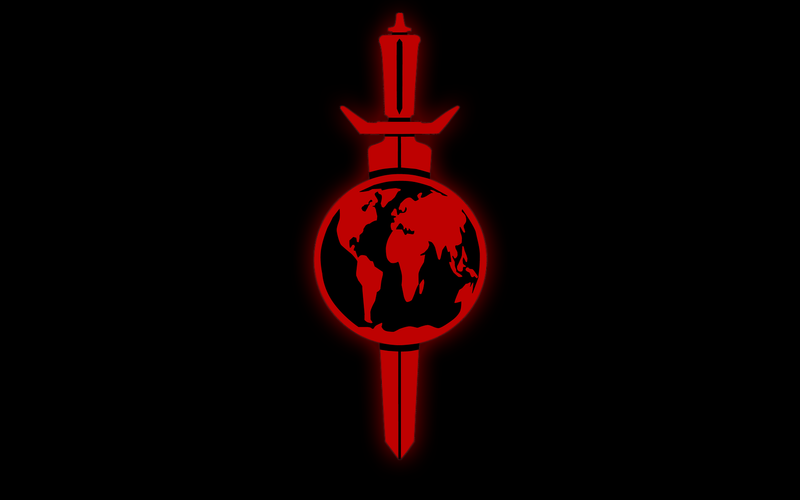 Almost every far future science fiction story has a galactic empire of some kind. From Dune to Foundation, from Star Wars to Firefly, there’s always someone trying to rule the galaxy, often in a way that makes life difficult for the protagonists.
Almost every far future science fiction story has a galactic empire of some kind. From Dune to Foundation, from Star Wars to Firefly, there’s always someone trying to rule the galaxy, often in a way that makes life difficult for the protagonists.
Why? Rule of drama, of course, but also because it gives the story a truly epic scope. Just as the classics such as Homer’s Iliad and Tolstoy’s War and Peace are as much about entire civilizations as they are about the people characters within them, so it is with science fiction, especially space opera. Combine that with science fiction’s forward-thinking nature, and you have the potential for some truly amazing stories about humanity’s destiny among the stars.
But why empire? Because even if we make it out to the stars, we’ll probably still take with us all of the baggage that makes us human. Science fiction may be forward looking, but history repeats itself, and you can’t have a clear view of the future without understanding and acknowledging the past.
Not all galactic empires are evil, but most of them are. We shouldn’t have to look further than the real-world history of Imperialism to see why. Oppression, exploitation, slavery, genocide–all of these have been done in the name of Empire, and many more evils besides. Even benevolent hegemonic powers (such as, I would argue, the United States of America) often end up doing great harm, either through action or inaction.
Of course, all of this makes for some really great stories. When Asimov wrote his Foundation series, he quite literally based it on The History of the Decline and Fall of the Roman Empire by Edward Gibbon. When Frank Herbert wrote Dune, he drew extensively from his background as an orientalist and based the overworld story on the Muslim conquests of the 7th and 8th centuries. Star Wars is based loosely on the collapse of the Roman Republic, and Firefly echoes many of the old Western tales of former Confederate soldiers heading west after the US Civil War.
It’s worth pointing out that the Galactic Empire is by no means the only form of political organization in space opera. There are actually several, including:
- The Federation — A loose organization of stars and planets that usually exists to foster cooperation and mutual peace between galactic civilizations. Rarely evil, but can be crippled by red tape.
- The Republic — A more centralized version of the Federation, typically. Exercises more control over its citizens, but not in an oppressive way. Usually features some form of representative government.
- The Alliance — A team of political underdogs united to overthrow the Empire and establish a more just form of government in its place. If they win, they usually become the Republic or the Federation.
- The Kingdom — A smaller government within the larger political system, often struggling for survival against more powerful forces. Not always democratic, but is often good, at least to its own citizens.
- The Hegemonic Empire — Like the Empire, but rules primarily through soft power, ie co-opting their enemies rather than crushing them. May overlap with the Republic or the Federation.
- The People’s Republic of Tyranny — The Empire pretending to be the Federation.
- The Vestigial Empire — What the Empire becomes when it’s been defeated but not yet destroyed. Still oppressive and evil, but rules a smaller territory and struggles for relevance and survival.
- The Remnant — An element from the Alliance that’s gone rogue. The war may be over, but these guys are still fighting it, even if they’ve lost sight of what they’re fighting for.
- The Horde — A highly aggressive and expansionist warlord state. By far the most violent and brutal of any political organization, it seeks to conquer and subjugate the entire galaxy.
As a political science major, all these forms of government really fascinate me. I’ve played with quite a few of them, especially the Horde (Bringing Stella Home), the Empire (Desert Stars), the Hegemonic Empire (Star Wanderers), the Kingdom (Stars of Blood and Glory), and the Remnant (also Stars of Blood and Glory). You can definitely expect to see me play with them again in the future.

The Empire in my story are called the Colonies, and I guess they’re loosely based on the way Britian colonised countries. Only in this case, they’re colonising planets (which don’t happen to have any intelligent life on them already). Lots of potential here for the colonies, being so far away, to decide they don’t want to be part of the empire anymore. At this stage, it’s just a small group of people who want to break away, but the potential is there.
Rinelle Grey
I’m a trekkie at heart, so love your posts. We have trouble figuring out the many branches of governing bodies here on Earth. We’ll be really confused if we ever make it to other worlds! lol
Great E post and I love the other’s too.
Kathy at Oak Lawn Images
Thanks guys! Yeah, there’s so much interesting potential for different styles of political organization in sci-fi. One thing I’d like to see a little more of is the techno-democracy: a perfect democracy where digitalization has gotten rid of the need for representatives, and everyone votes on the decisions directly. I’ve got something going like that in my Gaia Nova series, but I’d like to see any other examples if there are any (I’m sure there are, somewhere).
I would love to see that in real life! I really don’t get why it’s so hard. Although I can see many reasons why it might not work as well as it would seem to!